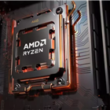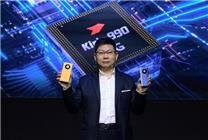Samsung’s Journey Towards Competing with TSMC in the Wafer Foundry Market
Summary:
- Samsung has made strides in increasing its 2nm yield rate, now reaching 55-60%, but aims for a commercially viable rate of at least 70%.
- Major clients, including Tesla, have placed significant orders, but Samsung still needs to attract additional customers in the competitive chip market.
- With advancements in its processes, Samsung may finally be positioned to challenge TSMC’s dominance.
In recent years, Samsung has aimed to carve out a significant share of the wafer foundry market, a domain historically dominated by TSMC (Taiwan Semiconductor Manufacturing Company). Despite some progress, including securing Apple A9 orders in the 14nm node, Samsung has struggled to attract major clients, largely due to persistent issues with its yield rates.
As the semiconductor industry evolves, the competition has escalated with advances into the 2nm process technology, a crucial milestone for Samsung. While the initial yield rates were promising, there remains a substantial gap when compared to TSMC’s established mass production capabilities. Recent developments, however, indicate a potential breakthrough. Current reports suggest that Samsung’s 2nm yield rates have risen to 55-60%, a figure that is now seen as acceptable for initial mass production.
The Road Ahead: Yield Rates and Customer Engagement
Despite this positive trend, industry analysts consensus indicates that a yield rate of at least 70% is necessary for Samsung to claim a competitive edge in the market. The current rates have already garnered interest from certain customers. Notably, Tesla has committed to a substantial order worth $16.5 billion, planning to leverage Samsung’s technology for next-generation AI chips, specifically the AI5 and AI6 series. While precise details around the manufacturing processes remain undisclosed, it represents a significant endorsement of Samsung’s advancements.
Samsung aims to utilize its 2nm process for producing the AI6 chips in the U.S., though production timelines may not commence until approximately 2027. For the time being, Tesla’s focus will likely be on the earlier AI5 product.
In addition to Tesla, Samsung itself has ambitions tied to this new technology, as the Exynos 2600 processor, manufactured using the 2nm process, is slated for release in the forthcoming Galaxy S26 smartphone.
Broader Market Landscape and Opportunities
While strategic partnerships with Tesla and in-house projects are promising, Samsung still faces challenges in expanding its roster of 2nm clients. Interest has emerged from financial technology and AI startups, including South Korea’s DeepX, which aims to utilize Samsung’s 2nm capabilities for AI chip production.
If the ongoing yield issues can be effectively addressed, Samsung may find itself well-positioned to compete more vigorously with TSMC for market share. Notably, TSMC currently serves a vast array of AI giants, with its CEO pointing to a pressing need for increased production capacity—at least threefold—to meet burgeoning demand.
TSMC’s advanced production technologies are expected to see price increases over the next three to four years, driven by the lack of competitive alternatives in high-end manufacturing. Should Samsung succeed in establishing a reliable footing with the 2nm process, it stands to gain critical traction in the sector.
Conclusion
Samsung’s recent improvements in 2nm yield rates signify a pivotal moment for the company in its long-standing quest to compete with TSMC. While challenges remain, including the necessity for enhanced customer acquisition and yield improvements, the strategic partnerships established with significant firms like Tesla could catalyze further advancements and market penetration. With continued innovation and effort, Samsung could indeed transform the competitive landscape of the semiconductor industry.









